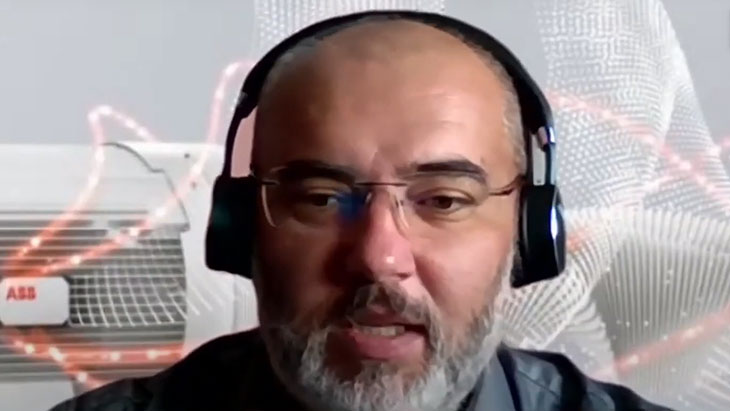ABB’s new engines significantly reduce energy consumption and costs, and investments in energy efficiency are also a motivating factor in any organization, each manager having a different motivation in the management chain, said Mihai Priboianu, Product Manager, ABB Romania, at the conference Digitalization and Energy Efficiency, organized by Energynomics in Piatra Neamț.
“ABB’s Motion Division is based on the motto ‘Keeping the World Moving, Saving Energy Every Day.’ The pressure to reduce energy consumption is visible in all of these meetings, and the easiest way to address this challenge is to use energy more efficiently than we have done so far. ABB is the one that makes the new technologies available, which are in line with the new regulations. The use of frequency converters, motors produced by ABB, with energy efficiency – all contribute to increasing the efficiency of consumption. There are positive implications both financially, operationally and in terms of environmental protection. The benefits are many. It is clear that savings are made, living standards can be increased, the macroeconomic impact is obvious, consumption is efficient and well controlled,” he said.
At the same time, most of the lifetime costs of motors and converters reside in electricity consumption.
“The acquisition cost represents only 5%, during the lifetime of the electric motors. About 3% is the maintenance cost. The remaining 92% are electricity consumption costs. The purchase price of an efficient motor or an ABB converter represents only a small percentage, compared to the energy consumed. Savings can be made, we have solutions and it is clear that there is a great potential to save energy over the life of equipments that use motors and converters. The standards in force, to which ABB has contributed and is complying with, currently require an IE3 efficiency class through the Eco-Design Directive. The base of worldwide installed motors, however, confirms – and this happens in Romania as well – that less than 20% of the number of electric motors are powered by converters. Power supply with frequency converters contributes to an increased efficiency, much higher than in the case of motors without converters. If the Eco-Design Directive imposes, from July 1, 2021, premium efficiency engines, of Class IE3, in two years a new Directive will enter into force, which will impose a minimum efficiency Class, of IE4. ABB has been producing ‘ultra-premium efficiency’ engines for a few years now, with an IE5 efficiency class … with obvious advantages. IE5 motors are without permanent magnets, and losses are 40% lower than in IE3 motors. The winding temperatures are 30% lower, 15% lower for the bearings … All these figures contribute to an increased reliability and to a longer lifespan of the motorized electric drive systems,” explained Priboianu, offering some examples and case studies.
At the same time, there are benefits at the corporate motivational level. “Depending on the role a person has in a company, the benefits are somewhat different: if a factory manager is responsible for providing low-energy solutions – the cost of maintenance, a purchasing manager may have, as task, reducing the risk associated with price volatility. Employees are much more motivated, they feel that they work in a much safer environment, the level of culture of the organization increases by adopting such solutions, which can motivate the employee,” said Priboianu.
